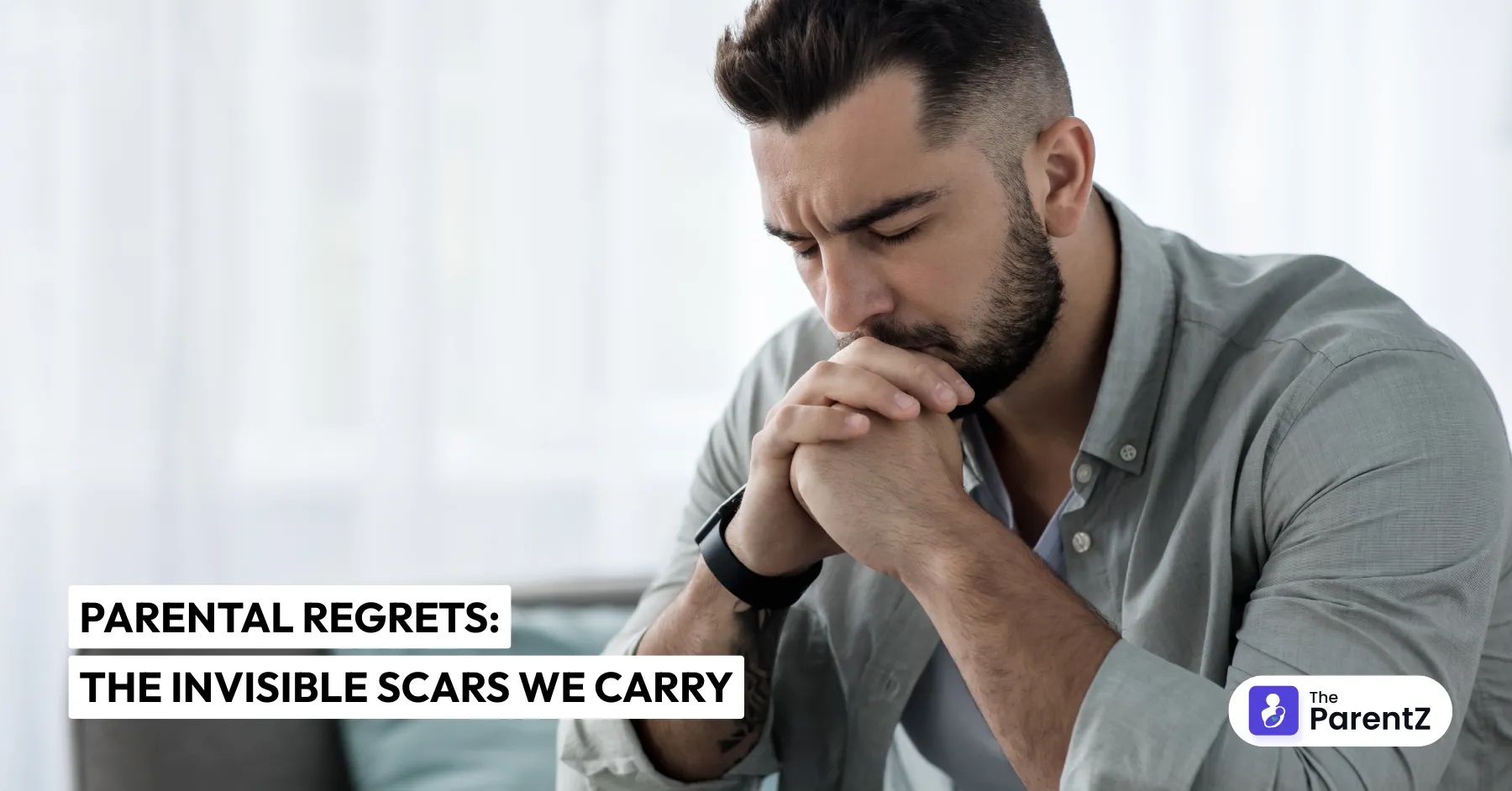Parental regrets are a common yet often unspoken aspect of parenthood. Many parents grapple with feelings of guilt and remorse over the choices they've made, whether it's not spending enough time with their children, being overly critical, or failing to provide emotional support. These regrets often strain the relationship between parents and their kids, creating a cycle of negativity that affects everyone involved.
We've all heard parents say, "I did the best I could," while children often whisper, "But was it enough?" There’s an old proverb that captures this experience: "The axe forgets, but the tree remembers." Parents may move on and forget a harsh word or a missed moment, but children remember.
The Weight of Unspoken Mistakes
Parental regrets aren't just about feeling bad. They're about understanding the deep, lasting impact our actions and words can have on our children. These regrets can stem from various sources:
- Emotional unavailability
- Constant criticism
- Unrealistic expectations
- Comparing children to siblings or others
- Neglecting emotional needs
- Projecting personal unfulfilled dreams
- Prioritizing work over family
- Unresolved personal traumas that spill into parenting
Each of these creates invisible scars. The child grows up, but the memory of those moments remains etched in their emotional landscape.
The Child's Perspective: Silent Suffering
Children aren't just passive recipients of parental actions. They're feeling, thinking individuals who internalize experiences deeply. When parents make mistakes, children often:
- Internalize criticism as personal worth
- Develop complex emotional defense mechanisms
- Struggle with self-esteem
- Battle anxiety and trust issues
- Create emotional walls to protect themselves
The most heartbreaking part? Many children don't have the language or emotional tools to express their hurt during childhood. They silently carry these wounds, which can manifest in adult relationships, personal challenges, and their own parenting styles.
Acknowledging Mistakes: The First Step Forward
The first step in addressing parental regrets is acknowledgment. It’s crucial for parents to recognize their feelings without judgment. Understanding that regret is a common emotion can help alleviate feelings of isolation and shame. Parents should allow themselves to feel these emotions fully, as suppressing them can lead to further issues down the line. Here's how they can start:
- Radical Honesty: Admit mistakes without making excuses. "I was wrong" carries more weight than "I was doing my best."
- Listen Without Defending: When your child shares their hurt, listen. Don't justify. Don't explain. Just listen.
- Seek Understanding: Ask questions. "How did my actions make you feel?" Shows genuine interest in their emotional experience.
- Accept Non-Immediate Forgiveness: Healing isn't linear. Your child might need time and space or might never fully "forgive" in the way you expect.
The Art of Seeking Forgiveness
Forgiveness is a two-way street; while parents may seek forgiveness from their children, it’s equally important for them to understand that forgiveness may not come easily or in the form they expect. Children might need time to process their feelings before they can forgive fully.
Parents should approach this delicately, allowing space for their children to express their emotions without pressure. This could involve having open discussions about feelings, where both parties can share their perspectives.
Seeking forgiveness isn't a transaction. It's a vulnerable, ongoing process:
- Apologize specifically, not generally.
- Demonstrate changed behavior, not just words.
- Respect boundaries
- Be patient
- Understand that forgiveness is a gift, not an obligation.
When Forgiveness Doesn't Look Like You Expect
Sometimes, reconciliation might not mean a Hollywood-style emotional reunion. It could look like:
- Respectful distance
- Cordial interactions
- Gradual rebuilding of trust
- Accepting limited relationship
And that's okay. Healing isn't always about complete restoration but about personal growth and mutual respect.
Accepting Reality
Acceptance plays a critical role in moving forward. Parents must recognize that while they cannot change the past, they can learn from it. Embracing imperfections in parenting allows for growth and improvement in relationships with children.
- Let Go of Perfectionism: Understand that no parent is perfect; mistakes are part of the learning process. Accepting this reality can relieve some pressure off both parents and children.
- Focus on the Future: Shift attention from past regrets to future possibilities. Set realistic goals for improving parenting practices and nurturing healthier relationships.
Conclusion
Parental regrets are an inevitable part of raising children; however, how parents choose to address these regrets can significantly influence family dynamics. By acknowledging mistakes, fostering open communication, spending quality time together, seeking forgiveness, and accepting reality, parents can move forward positively.
Remember that while the past shapes us, it does not define our future. Learning from our experiences enables us to become better versions of ourselves—not just as parents but as individuals striving for growth and understanding within our families.








Be the first one to comment on this story.